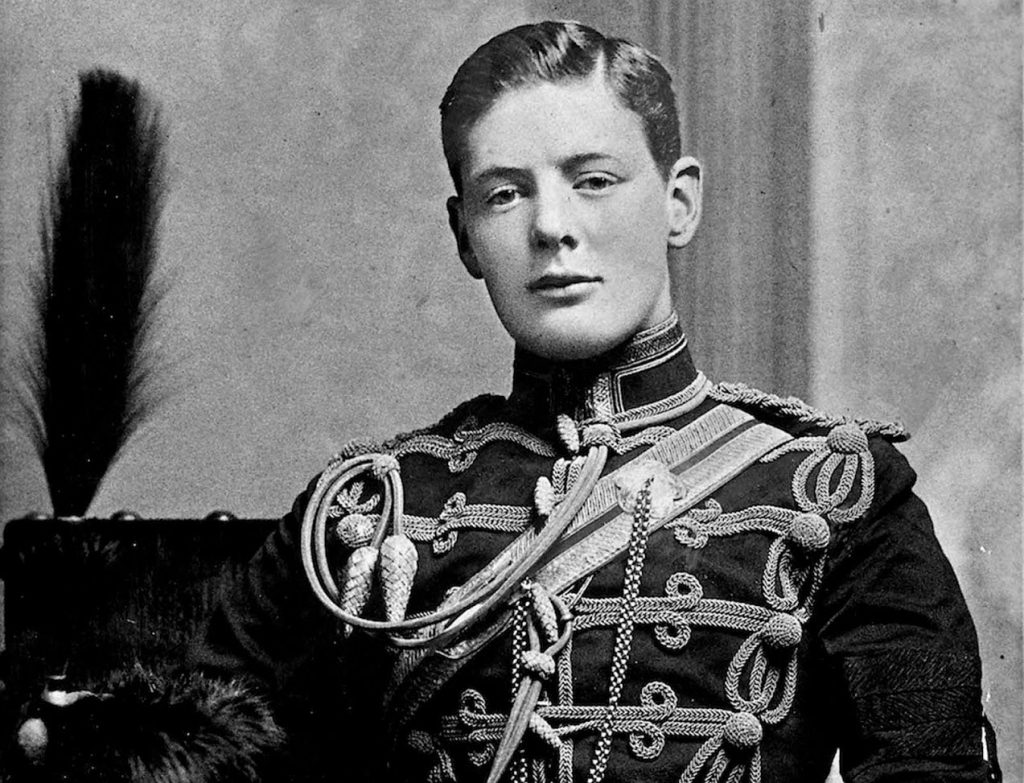
To listen to today’s reflection as a podcast, click here
More than anything, the young Winston Churchill yearned for the affection and approval of his father.
But Sir Randolph Churchill, a rising star in Britain’s Conservative Party at the turn of the last century, appears to have been ill-equipped to be a supportive dad.
He rarely even spoke to his gifted but sensitive son. Historians, in fact, agree that the future prime minister – who ultimately would be voted the greatest Englishman of the 20th century – was functionally abandoned by his parents.
Winston repeatedly asked his father to come see him when he was a student at Harrow. The exclusive school was just a 30-minute train ride from London. But Sir Randolph never came, even when Winston begged him to be present on a day he received a special award.
Winston hoped his American-born mother would intercede with his father on his behalf. But she was distracted by what one biographer called her “active social life.”
One historian has described her as “a beautiful, shallow, diamond-studded panther of a woman.” No accurate tally has ever been made of her extra-marital affairs, but it was certainly in the dozens. “I shall never get used to not being the most beautiful woman in the room,” she sighed late in life.
“Winston is going back to school,” she wrote during his childhood. “I’m not sorry, for he is certainly a handful.”
The classroom was not a happy place for Winston. From a distance, it seems clear that he suffered from some variety of Attention Deficit Disorder. He did not excel at most subjects, and essentially taught himself to read and write “on the fly” as a young adult.
This was ironic, since he would ultimately write a series of books that would total more than 15 million words. Today he is widely considered one of Britain’s most important historians.
After graduation, the young Churchill endeavored to enroll in Sandhurst, the British training academy for military officers (roughly the equivalent of West Point). It took him three tries to get in. Then he was compelled to enter the ranks of the cavalry, the least-regarded of all the military units.
Nevertheless, he held out hope that he would one day hear his father say, “Well done.”
Instead, the 23-year-old received in August 1893 what can only be described as one of the most painful correspondences imaginable.
Here are words of Sir Randolph, the disappointed parent:
“With all the advantages you had, with all the abilities which you foolishly think you possess, and which some of your relations claim for you, with all the efforts to make your life easy and agreeable, and your work neither oppressive nor distasteful, this is the grand result – that you come up among the second-rate and third-rate class, who are only good for commissions in a cavalry regiment.
“I shall not write again on this matter, and you need not trouble to write any answer to this part of my letter, because I no longer attach the slightest weight to anything you may say about your own acquirements and exploits.
“You will become a mere social wastrel, one of the hundreds of public school failures, and you will degenerate into a shabby, unhappy, and futile existence. If this is so, you will have to bear all the blame for such misfortunes yourself.”
The historian Thomas Ricks concludes, “A son who could survive such an upbringing would either be thoroughly damaged or, with some luck, be enormously self-confident.”
Winston Churchill somehow survived his own parents.
His experience brings to mind one of the Bible’s most poignant verses: “Though my father and mother forsake me, the Lord will receive me” (Psalm 27:10).
It’s hard to measure the pain of being ridiculed and rejected by the very people given the sacred responsibility of protecting us. But God’s care and God’s intentions for our lives can bridge even a Grand Canyon of hurt.
It makes a difference whether or not we believe the most important person we know believes in us.
Here is the very good news:
Every time we pray “Our Father,” we’re talking to the parent whose affection and approval we never need to doubt.
